The Association for Constructivist Teaching is a professional organization promoting children's construction of knowledge in all domains –intellectual, physical, social, emotional and moral.
Board of Directors
Crookston, Minnesota
2020 ACT Host Coordinator
Birmingham-Southern College
Birmingham, AL
Askew Elementary
Houston, TX
Lifetime Board Members
ACT Advisory Board Bios

Dr. Carolyn Black began her career as a constructivist, while studying with Rheta DeVries in Houston, Texas. She attended ACT since 1997, where her work in the Child Development and Early Childhood Education was enhanced. Carolyn was a faculty member at the University of Arkansas, San Jacinto College, and the University of Houston Clear Lake before becoming the founding Principal/Superintendent at the University of Houston Charter School. In retirement, she worked in archiving the work of Rheta DeVries.

Dr. Seon Chun-Burbank has been in the field of Early Childhood Education over 20 years as a full-time faculty member and an administrator in three higher education institutions, a pre-K teacher, a consultant, and a researcher. She completed her master’s and doctorate program under the advisement of the late Dr. Rheta DeVries. Dr. Chun-Burbank is actively engaged in the professional community, presenting nationally and internationally, conducting research, co-chairing conferences, and volunteering for various professional and community-based non-profits. She has been consciously applying the principles of constructivism into teaching young children as well as adults.

Dr. Randa Dunlap is an Assistant Professor of Child Development, Literacy, and Special Education at Appalachian State University and has advised, taught, and supervised preservice teachers in Tennessee, South Carolina, and North Carolina. She received her Ph.D. in Early Childhood Education from East Tennessee State University where she examined constructivist strategies for teachers to promote empathy with young children. She has experience teaching in Reggio Emilia-inspired, multi-age preschool classrooms and working with third-grade children in public elementary school classrooms. While working at the University of South Carolina – Aiken, she taught a series of language and literacy methods courses, and she currently teaches a variety of classes related to Child Development and Family and Child Studies. She has been actively involved with ACT since 2016.
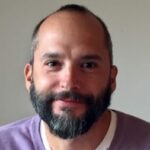
Dr. James Foss is an educator and curriculum writer who has worked in early childhood and elementary education both nationally and internationally for over 17 years. Concern for the rights of children is the inspiration for research on teacher personal epistemology, teacher guided inquiry, and constructivist principles for learning. In 2018, he joined teacher education faculty at the University of Minnesota Crookston as an assistant professor and now resides in Grand Forks, ND, with his wife, and three children.

Dr. Yeh Hsueh teaches human development at the University of Memphis where his students come from various education majors such as music, physical, counseling, language, art, psychology and research. Before he settled in his current teaching position, he had taught preschool, elementary school, high school, and graduate school. His research interest lies in the history of developmental science in the United States and comparative preschool education. For over twenty years, he served as a Chinese content consultant for Sesame Workshop, the producer of Sesame Street. One profound educational experience that has long-lasting impact on his learning and life is his engagement with “the critical exploration in the classroom” which many consider a significant constructivist approach in education. This approach is also the main reason for him to study the US reception of Piaget’s work in psychology and education.
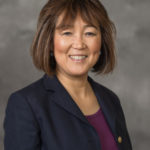
Dr. Seong Bock Hong is a professor of early childhood education at the University of Michigan-Dearborn, where she has been teaching for over 25 years. She is a long-time board member of the Association of Constructivist Teaching and is a former president. She is also a consulting editor board for peer reviewed issue Innovations. Her study of constructivism theory began in 1991 while working as a documentarian for Reggio Inspired early childhood laboratory school at UMass, Amherst. She and her colleague, Jane Brodrick developed the Cycle of Inquiry (COI) system for use in their teaching and research projects and have presented their COI work at numerous conferences and early childhood programs. Her recent research focus has been art inquiry theory and practice among art and early childhood educators.
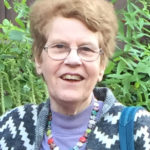
Dr. Sonja de Groot Kim received her PhD in Early Childhood Leadership from NYU. Her interest in constructivist theory was nourished at the Pedagogic Academy in the Netherlands. She has been a lifelong early childhood educator and teacher educator and was strongly influenced by the Reggio Emilia Approach to Early Childhood Education. At Kean University, where she taught undergraduate and graduate courses, she infused constructivist and social-constructivist pedagogy into all her courses, including co-constructing some course syllabi with her students. As faculty liaison to the campus laboratory school on campus she collaborated with educators to develop topics of study with the children and presented at national and state conferences with them.
Dr. David Kritt has taught pre-service and in-service teachers about the relation between processes of thinking and classroom practices for over 25 years. His writing has also focused on the formative influence of technology on individuals and society, the cultural context of development, and socialization in a changing society. In the 2018 book he edited, Constructivist Education in an Age of Accountability, it is argued that current classroom practices emphasizing prescribed curricula and test performance recast the aims of school learning. The 2022 paper co-authored with Nancy Budwig for Human Development argues that this is a watershed moment for the future of constructivist education and examines defining features of constructivism. They emphasize the vital role of constructivist teaching and learning for creativity and participation in a democratic society.
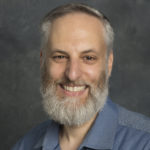
Dr. Meir Muller has earned rabbinical ordination as well as a doctorate in the area of early childhood education. Dr. Muller serves as an assistant professor in the College of Education at the University of South Carolina. His research interests include culturally relevant pedagogy, anti-racist pedagogy, constructivist theory, and Jewish early childhood education. In 2016 Dr. Muller was awarded the Early Childhood Teacher Educator Award by the National Association for Early Childhood Teacher Education. Recently Dr. Muller has served as lead author of South Carolina’s early childhood state standards and is part of a team of educators developing curricula that prepare European teachers to address bias, prejudice and anti-Semitism. Dr. Muller is also in his 27th year as head of the Cutler Jewish Day School, a NAEYC accredited school for children birth through fifth grade.

Dr. James Pelech, a former ACT President, brings over 48 years of teaching to the Board. He taught at the High School Level for 30 years; in this capacity he taught all levels of mathematics, instituted an integrated curriculum unit and had an article on the graphing calculator published. At the collegiate level Dr. Pelech taught methods and assessment courses, as well as working with student teachers and Doctoral students. Dr. Pelech created a partnership with a local private school; in this capacity he co-taught with teachers and was also the Board President. He has published three books based on Constructivism, and a fourth book will be published shortly. He served in the Army Reserves for over 20 years, being activated in 1996 as a senior logistics officer supporting Operation Joint Endeavor. Presently, he is President of the Board of the Institute of Learning Centered Education and is on the Board of the Army Transportation Museum, where he is directing the creation of the Museum’s STEAM program.

Kara Pranikoff has worked for over two decades in New York City public schools. She has served as a classroom teacher; reading interventionist; instructional coach; curriculum designer; and an adjunct instructor at Bank Street College of Education. As an independent consultant Kara supports educators in deepening their practice of inquiry-based, culturally relevant teaching of social studies and writing. Kara’s book, Teaching Talk: A Practical Guide to Fostering Student Thinking and Conversation (Heinemann, 2017) shares ways to foster productive and independent student discussions in elementary and middle school classrooms.
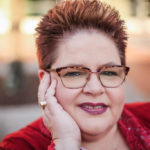
Dr. Kelly Russell studied Piaget’s constructivist theories under the tutelage of Dr. Constance Kamii. After graduating from the University of Alabama at Birmingham with a degree in Early Childhood Education with a concentration in epistemology, she began teaching at Birmingham-Southern College where she has been since 2007. She teaches classes in child development, science education, and developmental math.
Dr. Beth VanMeeteren has been in public education since 1983 as a first grade teacher for 24 years, then in higher education and now serves as a Professor in Curriculum & Instruction at the University of Northern Iowa and is Director of the Iowa Regents’ Center for Early Developmental Education (IRCEDE). From 2001-2007 she worked with IRCEDE Director Dr. Rheta DeVries to develop constructivist curricula (primarily physical science experiences) for preschool through second grade children and assisted in the development and delivery of professional learning for practicing teachers. Assuming the Director’s role in 2014, VanMeeteren capitalized on this work to find a natural and meaningful alignment with engineering education and STEM education for our youngest learners. Since then, the IRCEDE team has published five books with Teachers College Press and developed constructivist STEM experiences for children from birth through age 8 that has been requested across the state, nation, and globally.
